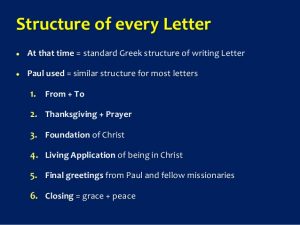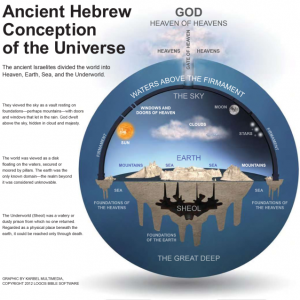
Shownotes
Welcome to Day 1396 of our Wisdom-Trek, and thank you for joining me.
I am Guthrie Chamberlain, Your Guide to Wisdom
Mastering the Bible – New Testament Letters and Cosmic Geography – Worldview Wednesday
Wisdom - the final frontier to true knowledge. Welcome to Wisdom-Trek where our mission is to create a legacy of wisdom, to seek out discernment and insights, and to boldly grow where few have chosen to grow before.
Hello, my friend, I am Guthrie Chamberlain, your captain on our journey to increase wisdom and create a living legacy. Thank you for joining us today as we explore wisdom on our 2nd millennium of podcasts. Today is Day 1396 of our trek, and it is Worldview Wednesday. Creating a Biblical Worldview is essential to have a proper perspective on today’s current events.
To establish a Biblical Worldview, you must have a proper understanding of God and His Word. Our focus for the next several months on Worldview Wednesday is Mastering the Bible through a series of brief insights. These insights are extracted from a book of the same title from one of today’s most prominent Hebrew Scholars, Dr. Micheal S. Heiser. This book is a collection of insights designed to help you understand the Bible better. When we let the Bible be what it is, we can understand it as the original readers did, and as its writers intended. Each week we will explore two insights.
Mastering The Bible – New Testament Letters and Cosmic Geography
Insight Sixty-Seven: Epistles Are Letters
The word “epistle” comes from the Greek word epistole, which means “letter.” We typically associate that word with personal correspondence, but a “letter” might refer to all sorts of documents (commercial, legal, governmental, etc.).
The letters we see in the New Testament are both personal and formal. On the one hand, the writers have a personal attachment to the recipients. Paul, for instance, wrote letters to churches he had founded. Peter and James wrote more general letters to groups of believers who were under persecution. Given the fact that some New Testament letters were aimed at audiences scattered about and not in one location (James 1:1) or were shared with other churches (Colossians 4:16), New Testament letters also had a formal feel to them. Their content was considered essential for believers who had not been the initial addressees.
In our age of instant and scattershot communication, the art of letter writing has mostly been lost. A good letter has discernible components and structure. I can remember learning how to write a letter in grade school. My teacher taught us that letters began with a salutation (Dear…). Instead of getting right to the point, our salutation was supposed to be followed by some sort of light banter to set the right tone, hopefully. We might want to include a preview of what the letter was ultimately about. Then came the body of the letter, whose coherence was fostered or undermined by clear or confused paragraphing. When we were bringing things to a close, we were taught to leave the reader a final reminder so that the main purpose of the letter wouldn’t get lost. Then we closed with “Sincerely” if formal or “Love” if appropriate and signed our names.
New Testament letters also followed patterns. Most of Paul’s letters open with a personal salutation, greeting, and blessing or note of thanksgiving. Here is an example from I Corinthians 1:1-4.
- Greetings from Paul
This letter is from Paul, chosen by the will of God to be an apostle of Christ Jesus, and from our brother Sosthenes.
I am writing to God’s church in Corinth, to you who have been called by God to be his own holy people. He made you holy by means of Christ Jesus, just as he did for all people everywhere who call on the name of our Lord Jesus Christ, their Lord and ours.
May God our Father and the Lord Jesus Christ give you grace and peace.
- Paul Gives Thanks to God
I always thank my God for you and for the gracious gifts he has given you, now that you belong to Christ Jesus.

Paul would then launch into the body, which he divided into a teaching section and an exhortation/application section (cf. Ephesians 1-3, 4-6). He often closed by sending more personal greetings to friends by name (Romans 16:3-16).
Knowing what to expect is helpful for those times when the writer breaks the expected conventions. Recognizing the norm helps draw our attention to the exception, which is usually what the writer intended to do.
Insight Sixty-Eight: Paul’s Descriptions of the Powers of Darkness Presume a Cosmic Geography

Deuteronomy 32:8-9 informs Bible readers that God put the nations under the authority of the sons of God when he judged them at the Tower of Babel. Deuteronomy 4:19-20, a parallel to the two verses in Deuteronomy 32, reveals the flip side of that judgment-coin, the gods of the nations were allotted to the people God had disinherited. The result was that God took Israel as his own people (Deuteronomy 32:9), but everyone else was under the dominion of lesser gods. These (little g) gods would, in time, become hostile to God and corrupt the nations (Psalm 82). In effect, non-Israelites were enslaved to demonic entities (Deuteronomy 32:17).
The reversal of this situation came with the arrival of Jesus, his work on the cross, and the coming of the Spirit at Pentecost. In the wake of Jesus’s resurrection, the birth of the church signified an aggressive advance in the spiritual battle for the kingdom of God, which launched in the public ministry of Jesus, its king.
The epistles presume this spiritual warfare. The nations are under dominion, and their people must be liberated by the gospel and brought into God’s kingdom. It’s easy to tell because of the terms Paul uses to describe the hostile entities that enslaved people. Paul uses the term “demons” only six times, four of which occur in 1 Corinthians 10:20-21, and that passage draws on Deuteronomy 32:17, where the gods of the nations at Babel are called demons (cf. Deuteronomy 4:19-20; 17:3-4: 29:24-26; 32:17).
Paul refers to these demons by a range of other terms: rulers (1 Corinthians 2:6; Ephesians 3:10; 6:12; Colossians 1:16), authorities (Ephesians 3:10; 6:12; Colossians 1:16); thrones (Colossians 1:16); dominions (Colossians 1:16). All these words have a common denominator: they describe geographical rulership. They are all used elsewhere in the New Testament to signify human beings ruling over specific places. Paul’s language is quite consistent with the notion that the earth’s nations are under the dominion of sinister divine beings who are hostile to Jesus and the gospel.
The lesson is simple but profound. This world is not our home. It is enslaved by demonic powers who resist surrendering their subjects to the Most High. This was the world of the apostles; it is our world as well. The battle will continue "until the full number of Gentiles comes to Christ" (Romans 11:25). That
is to say, “brought into the kingdom, wrenched free from the powers of darkness.”
That will conclude this week’s lesson on another two insights from Dr. Heiser’s book Mastering the Bible. Next Worldview Wednesday, we will continue with two additional insights. I believe you will find each Worldview Wednesday an interesting topic to consider as we build our Biblical Worldview.
Tomorrow we will continue with our 3-minute humor nugget that will provide you with a bit of cheer and help you to lighten up and live a rich and satisfying life. So encourage your friends and family to join us and then come along with us tomorrow for another day of our Wisdom-Trek, Creating a Legacy.

If you would like to listen to any of our past 1395 treks or read the Wisdom Journal, they are available at Wisdom-Trek.com. I encourage you to subscribe to Wisdom-Trek on your favorite podcast player so that each day’s trek will be downloaded automatically.
Thank you so much for allowing me to be your guide, mentor, and, most of all, your friend as I serve you through the Wisdom-Trek podcast and journal.
As we take this trek together, let us always:
- Live Abundantly (Fully)
- Love Unconditionally
- Listen Intentionally
- Learn Continuously
- Lend to others Generously
- Lead with Integrity
- Leave a Living Legacy Each Day
I am Guthrie Chamberlain reminding you to Keep Moving Forward, Enjoy Your Journey, and Create a Great Day Everyday! See you tomorrow!